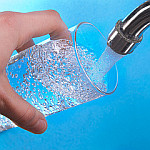Temperatures are rising across the country and many cities are feeling the heat of 100 degrees or more. With the addition of humidity, some areas will begin to experience extreme heat. During extreme heat, it is important to stay cool.
Extreme heat causes more deaths than hurricanes, tornados, floods and earthquakes combined. Heat related illnesses occur when the body is not able to compensate and properly cool itself. The great news is extreme heat is preventable by following a few tips:
- Listen to local weather forecasts and stay aware of upcoming temperatures.
- Do not leave children or pets in the car unattended at any time.
- Stay indoors as much as possible and limit exposure to the sun.
- Stay on the lowest floor out of the sunshine if air conditioning is not available.
- Postpone outdoor games and activities.
- Weather strip doors and windows to keep cool air in.
- Cover windows that receive morning or afternoon sunshine with drapes, shades or awnings.
- Drink plenty of water, even if you do not feel thirsty. Avoid drinks with caffeine. Persons who have epilepsy or heart, kidney, or liver disease; are on fluid-restricted diets; or have a problem with fluid retention should consult a doctor before increasing liquid intake.
- Stay indoors. If you do not have air conditioning, visit a cooling station such as your local library or shopping mall.
- Wear light weight and light colored clothing with sunscreen to reduce exposure to the sun.
- Pace yourself in your outside activities. Reschedule if needed.
- Check on family, friends, and neighbors who do not have air conditioning and who spend much of their time alone.
- Avoid extreme temperature changes.
For more information on beating the heat visit:
http://www.ready.gov/heat
http://emergency.cdc.gov/disasters/extremeheat/

